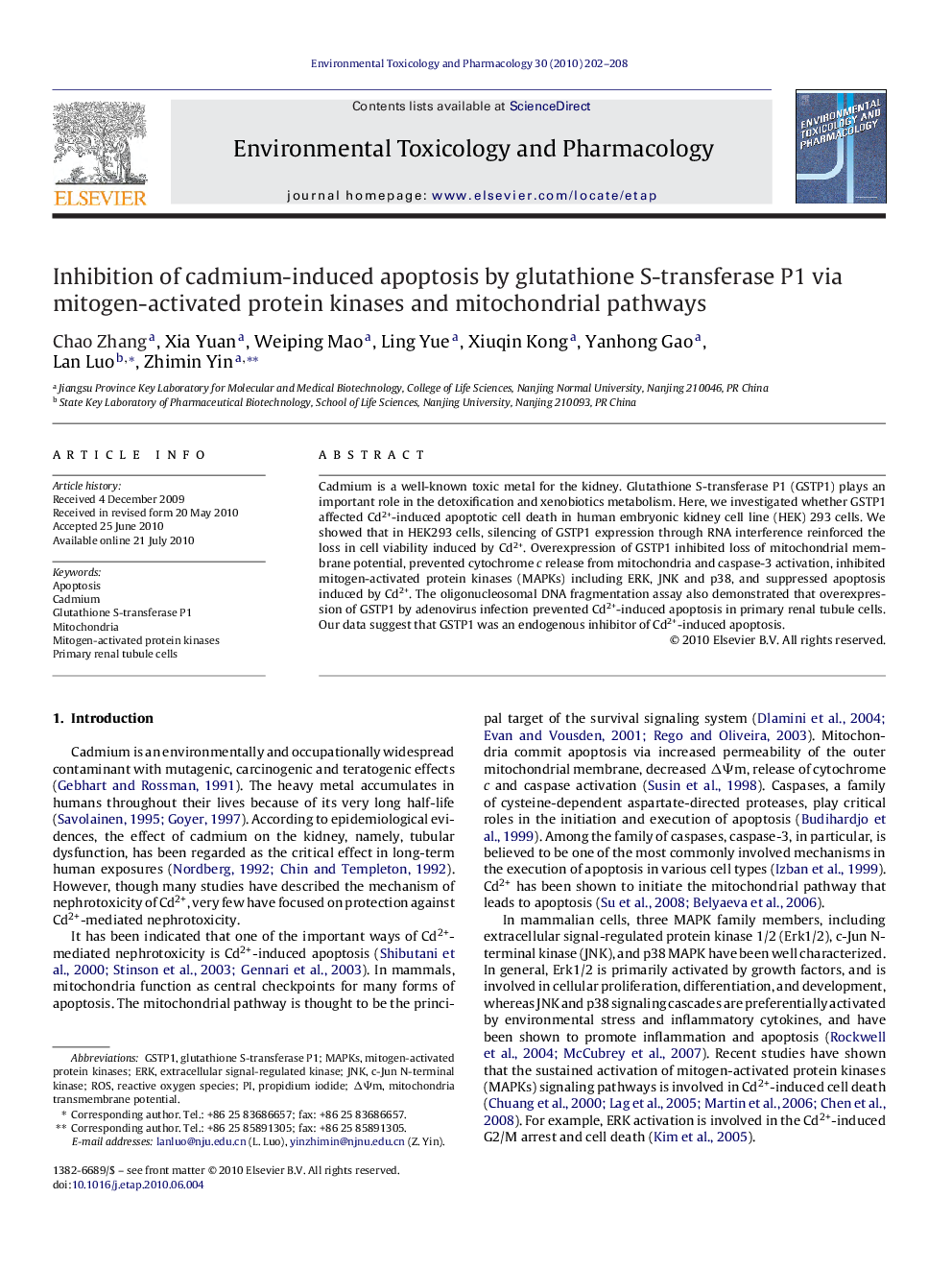| Article ID | Journal | Published Year | Pages | File Type |
|---|---|---|---|---|
| 2583568 | Environmental Toxicology and Pharmacology | 2010 | 7 Pages |
Cadmium is a well-known toxic metal for the kidney. Glutathione S-transferase P1 (GSTP1) plays an important role in the detoxification and xenobiotics metabolism. Here, we investigated whether GSTP1 affected Cd2+-induced apoptotic cell death in human embryonic kidney cell line (HEK) 293 cells. We showed that in HEK293 cells, silencing of GSTP1 expression through RNA interference reinforced the loss in cell viability induced by Cd2+. Overexpression of GSTP1 inhibited loss of mitochondrial membrane potential, prevented cytochrome c release from mitochondria and caspase-3 activation, inhibited mitogen-activated protein kinases (MAPKs) including ERK, JNK and p38, and suppressed apoptosis induced by Cd2+. The oligonucleosomal DNA fragmentation assay also demonstrated that overexpression of GSTP1 by adenovirus infection prevented Cd2+-induced apoptosis in primary renal tubule cells. Our data suggest that GSTP1 was an endogenous inhibitor of Cd2+-induced apoptosis.
